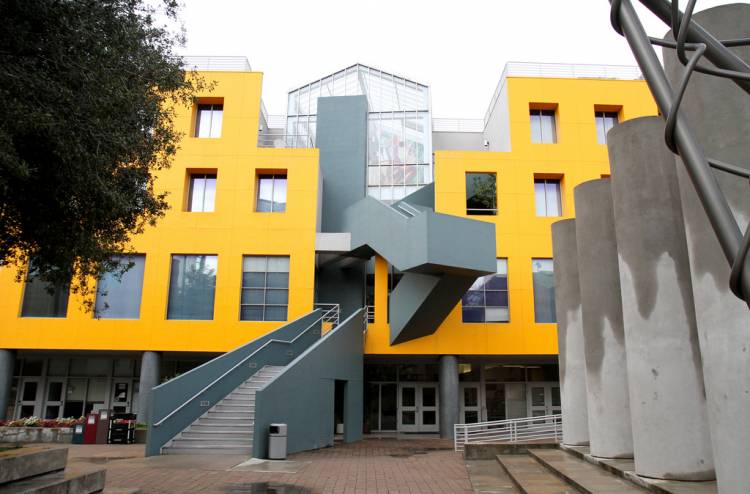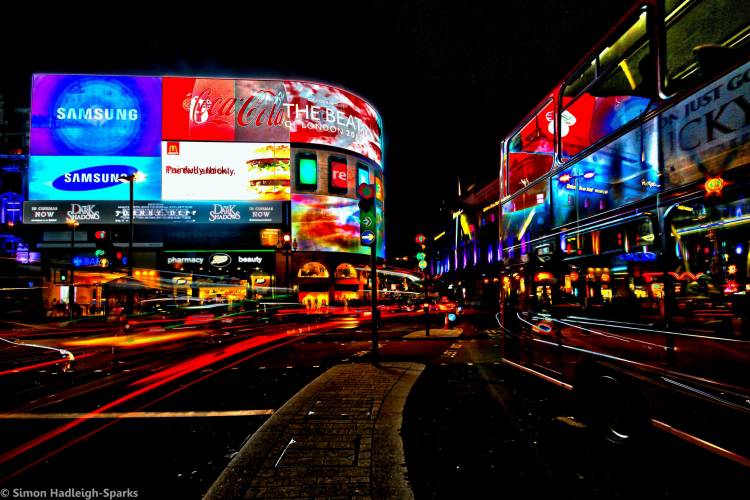Lights! Camera! Contract!
Anybody who’s ever worked in or around the media or entertainment fields knows the importance of contracts and other legal facts of life.
The proliferation of licensing agreements, talent contracts, option negotiations, copyright issues, the emergence of digital, and the like means that there is no shortage of work for the up-and-coming entertainment lawyer.
And indeed, LL.M. programs all over the world are catering to the growing demand for lawyers skilled in the entertainment and media law fields.
Home to Hollywood, Los Angeles is arguably the entertainment epicenter of the world. And as such, a number of law schools in the area, such as UCLA School of Law, Pepperdine School of Law, and USC Law School, all offer LL.M. concentrations in these fields.

Loyola Law School, Los Angeles offers an LL.M. in Entertainment and Media Law; on a good day the school is about 20 minutes away from Hollywood by car.
The school’s LL.M. director Aaron Ghirardelli says that for foreign lawyers wanting to break into the media and entertainment business, an LL.M. from a US school is essential “because the majority of the movies and TV shows are made, of course, in the US”.
“So whenever you do a contract for the licensing of intellectual property, or whenever there are issues concerning rights on entertainment products, most likely the partners will be US partners so you have to be fluent in American law.”
Ghirardelli says that foreign students on his program are coming increasingly from Asia.
“They’re already working in big entertainment companies in Asia, mostly in China. And they’re coming here with the idea of specializing in entertainment law and gaining exposure to American law.”
The school offers very niche courses in entertainment law, including motion picture financing, television programming and financing, reality television, and these are taught by leading practitioners in the field.
But it also provides externship and mentoring opportunities designed to help students get their foot in the door of the industry and seek out potential job opportunities.
“The Entertainment Law Practicum gives students the opportunity to get externships in top entertainment law positions,” says Ghirardelli.
Ghirardelli says externships are particularly important for foreign LL.M. students.
“Then when you go back to your country, not only can you say, ‘I know American law and the US legal system’, you can say, ‘I also have experience working in a law firm in the US’. That’s truly important if you aspire to work in a big international firm.”
Graduates have found positions at Sony Pictures, MGM and National Geographic.
He says students benefit from alumni staying connected and offering their support – through workshops and mentorships – to current students because so many of them stay in the city after graduation.
“So these are not former students who graduate and then nobody ever sees them again. These are top lawyers in entertainment law that keep coming back.”
Media and Entertainment LL.M.s: A worldwide phenomena
It’s not just Los Angeles; Media and Entertainment LL.M.s can be found at law schools all over the world.

The School of Law at Queen Mary University of London (QMUL) is home to the LL.M. in Media Law, where professional development opportunities are plentiful.
Indeed, the entertainment industry is on the rise in London and the country more broadly: in 2014, for example, the film industry in the UK generated some 1.4 billion GBP, according to data from the British Film Institute.
Like Loyola, QMUL leverages the school’s location in London to give LL.M. students practical experience in the entertainment and media fields.
“Our objective is to try to give our students as many opportunities to do extra curricular employability activities as possible,” says Dr Ian Walden, Professor of Information and Communications Law at QMUL.
QMUL’s law school houses qLegal, a legal advice center where students can get hands-on experience by offering free legal advice to startups and entrepreneurs.
The school’s location provides easy connections to Europe and beyond, as well as strong ties to the UK’s media and entertainment industry. The program helps students to find work experience placements in London, particularly at up-and-coming media firms in need of fresh talent.
“If you want to get into the digital media environment, we target the Shoreditch and startup community,” says Walden. “It’s a very good way of showing a potential employer that you have an interest that goes above and beyond just doing the degree.”
The law school’s solid reputation within the local media industry is reflected in the fact that the media law program regularly includes industry professionals who aren’t there to obtain an LL.M., but simply for professional development.
This gives students the opportunity to mingle with those who are already in the business.
“We have a significant number of foreign students and they’re using the LL.M. as an opportunity to re-skill and change direction,” says Walden.
Studying entertainment law in the historical center of the German film industry
Germany might not be the first place you’d think of when searching for a place to study media law.
But a new program run right next to the film studio where Fritz Lang’s Metropolis and more recently Cloud Atlas and Grand Budapest Hotel were filmed could make it a new destination for students who want to study entertainment law.

Earlier this year, the University of Potsdam announced that it was partnering with Film University Babelsberg Konrad Wolf and the Erich Pommer Institute for Media Law and Research (EPI) to launch a new master’s level program in digital media law.
The program will be taught within the entertainment hub that is also home to Studio Babelsberg and the Berlin-Brandenburg regional news broadcasting center.
The project manager for EPI’s master programs Martin Petrick says “the background is that our partners in the media sector have a need for people who are not generalists but specialists in the topics of media law, but with basics in media management”.
“Media companies need experts in both subjects to evaluate whether a business development is going to survive in the market.”
Those applying to the program decide in advance whether they are going to study towards the LL.M. or MBA. The first semester sees all students studying common subjects, but from the second semester they split off, with the LL.M. students focusing on topics including licensing and contract controls while the MBA candidates turn their attention to strategic management, for example.
“There is the possibility to study both,” says Petrick, “but formally these will be two programs.”
Petrick says those who graduate from the program will be ready to work in management positions and legal departments where they will be equipped with a strong overview over how both parts are functioning.
“They don’t necessarily need to answer all the questions themselves. They don’t need to be a law expert or a management expert but they have to be able to ask the right questions to the right people to solve the problems.”
For now, the dual master program will be taught in German with international visiting experts teaching in English. However, there is a view to being able to open the program up to English speakers and the international market in the future.
Images:
- Hollywood by Stephen Downes CC BY 2.0 (cropped)
- Loyola Law School (Los Angeles) by Ken Bergman CC BY 2.0
- Piccadilly Circus, London by Simon & His Camera CC BY 2.0
- Universität Potsdam am Neuen Palais by Wolfro54 CC BY 2.0










